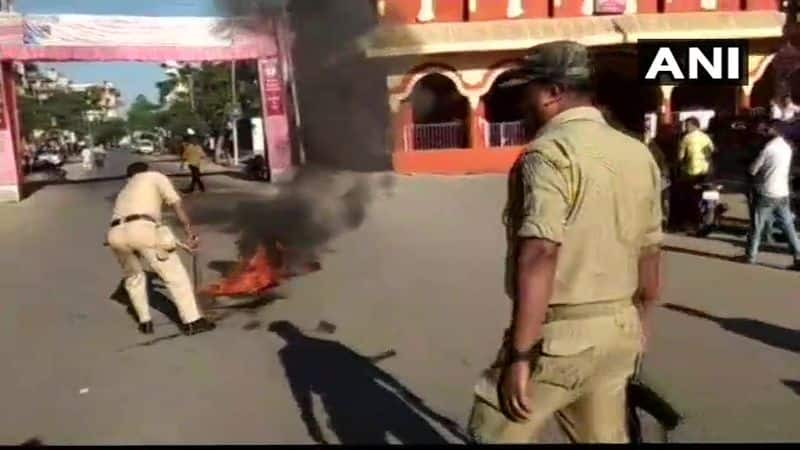'Assam will burn if they continue to push the bill. If the bill is passed in Parliament, the situation will worsen and the recruitment for ULFA-I, the anti-talk faction, will increase,' Anup Chetia said
Tinsukia (Assam): United Liberation Front of Assam (ULFA) faction’s general secretary Anup Chetia has warned that "Assam will burn" if the Union government continues to push for the Citizenship (Amendment) Bill.
Commenting on the killing of five people from the Bengali community in Assam's Tinsukia district on Thursday, pro-talk leader Chetia said some vested interests were behind blaming the ULFA faction for the incident.
“Assam will burn if they continue to push the bill. If the bill is passed in Parliament, the situation will worsen and the recruitment for ULFA(I), the ant-talk faction, will increase,” Chetia was quoted as saying by Hindustan Times.
Also read: ULFA-I operative arrested for Assam killings
ULFA faction is currently in talks with the Centre on the Citizenship (Amendment) Bill. The bill is pending with the Joint Parliamentary Committee (JPC).
If the bill is passed in Parliament, illegal migrants from certain communities from Afghanistan, Bangladesh and Pakistan will be eligible for Indian citizenship. Indigenous groups in Assam have opposed this and say it is against the 1985 Assam Accord.
Earlier, ULFA-I had issued a statement saying that it was not involved in the Tinsukia killings.
"We, United Liberation Front of Asom (Independent) would like to make it clear to all concerned authorities that our organisation does not have any involvement in the firing incident that occurred on November 1 at Sadiya Saikhowaghat in Tinsukia district," it said.
Meanwhile, a two-member team of the National Investigation Agency (NIA) led by superintendent of police Bibekananda Das, visited the Kherabari area in Tinsukia district on Saturday night and collected evidence from the site.
The Assam Police arrested a suspected ULFA-I operative identified as Diklai Gogoi for his alleged involvement in the Tinsukia killing incident.
The Trinamool Congress, which has been vocal about the incident, kept the pot boiling with a delegation from Bengal reaching the Dibrugarh airport on Sunday morning to visit Tinsukia and interact with the affected families.
With inputs from agencies
Last Updated Nov 4, 2018, 5:51 PM IST











![Salman Khan sets stage on fire for Anant Ambani, Radhika Merchant pre-wedding festivities [WATCH] ATG](https://static-ai.asianetnews.com/images/01hr1hh8y86gvb4kbqgnyhc0w0/whatsapp-image-2024-03-03-at-12-24-37-pm_100x60xt.jpg)
![Pregnant Deepika Padukone dances with Ranveer Singh at Anant Ambani, Radhika Merchant pre-wedding bash [WATCH] ATG](https://static-ai.asianetnews.com/images/01hr1ffyd3nzqzgm6ba0k87vr8/whatsapp-image-2024-03-03-at-11-45-35-am_100x60xt.jpg)



